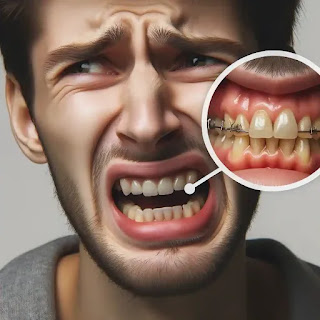Symptoms of an Ill-fitting Dental Bridge
What is a Dental Bridge, and Why is Proper Fit Crucial?
A dental bridge is a popular solution for replacing missing teeth, bridging the gap created by one or more missing teeth. The longevity, functionality, and comfort of a dental bridge are primarily determined by its fit. If the bridge isn't correctly adjusted, it can cause discomfort, complications, and even long-term dental issues.
Recognizing the Symptoms of a Poorly Fitted Dental Bridge:
In understanding these symptoms, it's equally vital to recognize the underlying causes and the significance of each. Regular post-operative care and consistent dental check-ups can prevent or address these concerns early, safeguarding one's oral health.
- Pain or Sensitivity: When a bridge doesn't fit right, it often results in an uneven distribution of pressure across the teeth and gums. This imbalance can manifest as pain or heightened sensitivity. A dental adjustment can evenly distribute this pressure, alleviating discomfort.
- Bridge Movement: If you notice your bridge shifting, it might not be properly adjusted. Over time, this movement can lead to malocclusion and potential TMJ issues. To combat this, a dentist can realign and secure the bridge, ensuring it stays in place.
- Gum Inflammation: Gums can become inflamed due to the irregular pressures exerted by an ill-fitting bridge. Treating this inflammation and readjusting the bridge is essential to prevent further complications.
- Difficulty Chewing: Stability is crucial for chewing efficiency. An unstable, ill-fitting bridge can hinder this basic function. A simple dental adjustment can restore ease of chewing.
- Changes in Bite: Over time, an improperly fitting bridge can shift one's bite, risking TMJ health. It's crucial to realign the bridge to its proper position to maintain a natural bite.
- Bad Taste or Breath: An ill-fitting bridge can trap food particles and bacteria, leading to unpleasant tastes or odors. Ensuring a correct bridge fit and maintaining oral hygiene can circumvent this issue.
Remember, the key to maintaining oral health, especially when using dental prosthetics like bridges, is regular care and check-ups. Addressing problems early ensures the longevity of your dental work and overall oral health.

